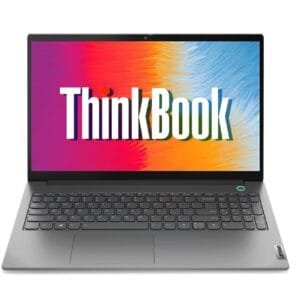The ₹1,407-crore acquisition comes as the logistics sector grapples with weak pricing pressure and profitability concerns resulting from too many players. This could lead to further consolidation in the sector, with larger companies acquiring smaller rivals.
Also read: Jaguar Land Rover tariff hit compounds Tata Motors’ domestic woes
With the market leader acquiring its closest peer, the combined entity could gain better control over pricing, scale, and operational efficiency — something Delhivery has been chasing since its listing. However, it is unlikely to be earnings-accretive in the near term, a concern that sent Delhivery’s share price down 9% after the initial rally.
Notably, Delhivery’s stock is down 55% from its listing price, reflecting the challenges in the sector. But now, the crucial question is: what went wrong with Ecom Express, and how does this acquisition position Delhivery for the future?
Let’s break it down.
Meesho’s Valmo disrupts Ecom Express
According to RedSeer, the top three platforms — Meesho, Flipkart, and Amazon — accounted for 79% of the total B2C horizontal gross merchandise value (GMV) in FY24. For Ecom Express, this meant high revenue concentration. Its top five customers accounted for 75% of its revenue, with Meesho alone contributing 52%.
The challenge emerged when Meesho, Ecom’s largest customer, with 50% market share in the third-party logistics space, launched itsown logistics vertical, Valmo, in February 2024 to handle sellers’ shipments. Unlike traditional logistics companies, Valmo operates on an asset-light model. It does not own trucks and warehouses. Instead, it partners with local logistics providers to manage deliveries.
Expansion has been rapid, with Valmo now operating across 15,000 pin codes through 6,000 logistics partners, according to Meesho’s FY24 annual report. As a result, Meesho’s reliance on third-party logistics has fallen significantly.
Also read: Banks have had a rough ride, but some bucked the trend
Over half of its orders are now fulfilled in-house, up from 22% last year. This shift helped it lower operation expenses, especially shipping costs, by 5%. However, for Ecom Express, the loss of volumes from its largest client weakened its pricing power and dealt a critical blow to its financials. The consumption slowdown, which affected e-commerce volume, further compounded the problem.
Ecom’s financials hit a roadblock, with revenue growing just 2% to ₹2,609 crore in FY24 from ₹2,554 crore in FY23, driven by a slowdown in volume growth to 10%. This was a steep drop from 22% growth in FY23, when volume rose by 26%. On the bright side, despite muted growth, Ecom managed to reduce its per-shipment operating cost by 15% in FY24 (from ₹47 in FY22), helping it narrow its losses by 40% to ₹256 crore.
Short-term pain for long-term gain?
In 9MFY25, Ecom revenue stood at ₹1,912 crore. On an annualised basis, this translates to ₹2,549 crore — flat compared to FY23 and FY24. Stiffer competition was visible as volume growth slowed to a modest 5%. Meanwhile, net losses widened to ₹398 crore in 9MFY25 from ₹256 crore (in FY24). Adjusted Ebitda (Ebitda + Esop cost – lease rentals) loss also widened to ₹104 crore from ₹11 crore in FY24.
Despite stagnant revenue growth, rising losses may have pushed Ecom to sell at an 80% discount. But for Delhivery, which itself turned profitable this year with ₹89 crore in 9MFY25, buying Ecom – a loss-making company – could weigh on earnings in the short term. This concern was reflected in the share price, which fell sharply after an initial rally.
The combined entity would command 55-60% of the third-party logistic B2C express market. This share is four times that of Shadowfax, the second-largest player. The entity will cover 97% of India’s pin codes, and these scale advantages are expected to drive cost synergies over the next 12-18 months.
Also read: Delhivery has turned profitable and is set to ride the e-commerce boom
Synergies are expected from rationalising overlapping network infrastructure such as sorting hubs, processing and delivery centers, and other last-mile network utilisations. To that end, Delhivery aims to downsize this excess capacity by FY26. With better efficiency and economies of scale, Delhivery’s operating cost per shipment ( ₹56), which is 40% higher than Meesho’s, could drop.
However, in the near term, Emkay Global said the deal would hurt earnings due to Ecom’s widening losses ( ₹398 crore in 9MFY25). This is despite Delhivery’s potential benefits from cost synergies, such as reduced overhead expenses (around 50% of Ecom’s ₹600 crore employee costs) and higher utilisation of the network (which accounts for 50% of linehaul costs).
Lessons of the past
However, these benefits may take time to materialise, given that Delhivery faced challenges integrating its previous acquisition, Spoton.
Delhivery bought Spoton, a profitable B2B company, for ₹1,600 crore in 2021 to strengthen its presence in the B2B logistics market. Delhivery said the acquisition was meant to create synergies across its B2C and B2B businesses and enhance its end-to-end supply chain capabilities.
But after the acquisition, Delhivery struggled to integrate Spoton into its business. As a result, it lost its second position in the B2B industry and its losses increased. According to a Delhivery press statement, this was due to a lack of customer overlap, which required onboarding new customers unfamiliar with the Delhivery system.
Also read: V-Mart Retail’s bold acquisitions hurt, but the tables are turning now
This onboarding process involved signing new contracts and agreements, which added to integration complexities. However, with Ecom, there is a complete customer overlap and over 95% revenue alignment between the two entities. Customers are already integrated with Delhivery systems, which should make the integration far smoother.
Consolidation may help restore pricing power
The third-party logistics B2C sector is highly fragmented, with many small players competing for volumes. As a result, logistics players lack pricing power, with e-commerce companies often dictating pricing terms. However, Emkay said this consolidation could shift the balance, enabling more disciplined pricing on the supply.
Also read: Vodafone Idea’s revival plan adds equity, but erodes shareholder value
According to Emkay, a distress sale of an established player could reduce the likelihood of further discounting to gain and capture market share. This, in turn, could strengthen the industry’s profit pool, with Delhivery, as the leader, well-positioned to benefit.
However, like Ecom, Delhivery’s shipment volumes will likely take a hit due to Meesho — the largest customer in the third-party logistics space — shifting its logistics operations to Valmo. Valmo claims its cost per parcel is about 5% lower than its peers’ and expects an additional 5-7% in savings going forward.
The growing number of e-commerce companies relying on inhouse logistics could also threaten Delhivery’s position. Frequent senior management exits have also sparked concerns about leadership stability, which could affect its performance.
For more such analysis, read Profit Pulse.
About the author: Madhvendra has over seven years of experience in equity markets and has cleared the NISM-Series-XV: Research Analyst Certification Examination. He specialises in writing detailed research articles on listed Indian companies, sectoral trends, and macroeconomic developments. Follow him on LinkedIn.
Disclosure: The writer does not hold the stocks discussed in this article.
The purpose of this article is only to share interesting charts, data points, and thought-provoking opinions. It is NOT a recommendation. If you wish to consider an investment, you are strongly advised to consult your advisor. This article is strictly for educational purposes only.









